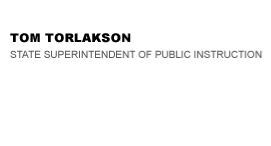Newly operational charter schools, FY 2013-14


Official Letter
Official Letter
December 4, 2013
Dear County Superintendents of Schools, Chief Business Officials, and Directors of Newly Operational Charter Schools:
NOTICE OF 20 DAY ACTUAL SPECIAL APPORTIONMENT FOR NEWLY
OPERATIONAL CHARTER SCHOOLS, FISCAL YEAR 2013–14
In accordance with California Education Code (EC) Section 47652, the California Department of Education (CDE) has made the second of two special apportionments to charter schools that are newly operational this fall. The special apportionment is, in effect, an advance apportionment and is based on the charter school’s first 20 days of actual attendance.
This apportionment in the amount of $32,309,813 is for the months of December 2013 through January 2014 and equals 18 percent of the charter school’s estimated funding for the 2013–14 fiscal year, calculated pursuant to sections 47633 and 47634.1, as they existed prior to enactment of Assembly Bill (AB) 97 (Chapter 47, Statutes of 2013).
New Local Control Funding Formula
AB 97, as amended by Senate Bill 91 (Chapter 49, Statutes of 2013) and Senate Bill 97 (Chapter 357, Statutes of 2013), established the Local Control Funding Formula (LCFF), which represents a significant change in how California’s kindergarten through grade twelve (K–12) local educational agencies (LEAs) are funded, including county offices of education, school districts, and charter schools. While the new LCFF is effective beginning July 1, 2013, the CDE has not yet incorporated many of the LCFF provisions into its apportionment systems. The CDE intends to begin calculating LEA funding in accordance with the new LCFF in the 2013–14 Second Principal (P-2) Apportionment, which will be certified on or before July 2, 2014. For more information on LCFF implementation, see the Fact Sheet posted on the CDE website at http://www.cde.ca.gov/fg/aa/pa/lcff13factsheet.asp [Note: the preceding web page is no longer available].
The LCFF is expected to be phased in over an eight year transition period. In accordance with EC Section 42238.03(f), funding for new charter schools during the LCFF transition period will be based on the prior year per-pupil funding rate of the district in which the charter school is physically located. Because we do not know the physical location of each new charter school, nor have we yet calculated the per-pupil rates of all school districts for purposes of this calculation, we cannot reasonably estimate at this time the actual funding rate that will be applied to each new charter school under the LCFF. Consequently, this apportionment has been calculated based on the statutes and funding rates that were in place prior to enactment of LCFF, including general purpose entitlement and categorical block grant funding.
Because this apportionment is merely a means to begin allocating funds in accordance with EC Section 41330, it should not be used for budget purposes. Actual final funding under the new LCFF formulas will differ from this apportionment. For more information on the assumptions used for this apportionment, we encourage you to read the 2013–14 Advance Principal Apportionment letter dated July 19, 2013, and the Calculations to Determine the 2013–14 Advance, which are posted on the CDE website listed on the following pages.
While this apportionment was not calculated using the new LCFF statutes, an increase of 4.62 percent was made to allocate a portion of the $2.1 billion that was appropriated by AB 97 to begin the transition to LCFF funding for school districts and charter schools. This increase is allocated in an equal percentage to all charter schools. Actual LCFF entitlements for individual charter schools will differ, so again, caution should be used in building these funds into budgets and spending plans.
Education Protection Account
Entitlements calculated in this apportionment were reduced by $200 per unit of estimated average daily attendance (ADA) to reflect the 2013–14 Education Protection Account (EPA) revenues as established by Proposition 30, The Schools and Local Public Safety Protection Act of 2012. The CDE will allocate EPA revenues on a quarterly basis, meaning LEAs will receive separate quarterly payments. The second quarterly EPA payment scheduled for December 2013 will equal 50 percent of each LEA’s estimated annual EPA entitlement less any amounts previously apportioned in September 2013 (for new charter schools this means quarterly payments of $100 for each unit of funded ADA at the 20-day, less any amounts previously apportioned in September 2013). Note that future payments may be adjusted for ADA changes and previous over- or under- payments of EPA funds. For more information on EPA, go to https://www.cde.ca.gov/fg/aa/pa/epa.asp.
Charter School General Purpose Entitlement Net State Aid
The amounts in the second special advance were calculated by using the 20-day actual attendance data less the amounts previously apportioned in the first special advance apportionment in September 2013. The first special advance apportionment is posted on the CDE website at https://www.cde.ca.gov/fg/aa/pa/chschspcadv1314.asp. If a school is listed on the 20-day apportionment schedule but has no apportionment amount, generally it is because it was overpaid in the September 2013 special advance.
Funding In-Lieu of Property Taxes
Also included in this special apportionment is funding to sponsoring school districts to backfill their transfer to charter schools of funding in-lieu of property taxes; for the months of December 2013 through January 2014, this equals 18 percent of the charter school’s projected total in-lieu of property taxes funding for the 2013–14 fiscal year. For most charter schools, EC Section 47632 defines the sponsoring LEA as the district that granted the charter, or in the case of a charter that was denied by a district and subsequently approved by a county office, the district that initially denied the charter.
For a county office of education approved charter school whose students are referred by parental request pursuant to subdivision (b) of EC Section 1981 or for a county-wide charter whose students reside in a basic aid district, the sponsoring LEA is the district of residence for those pupils. That means some county-approved charter schools will have multiple sponsoring districts if the school has students who reside in different districts. For a charter that was denied by an LEA and subsequently approved by the State Board of Education, the sponsoring LEA is the LEA that initially denied the charter or the LEA designated by the State Board of Education pursuant to paragraph (1) of subdivision (k) of EC Section 47605.
Method for Receipt of State Aid
Pursuant to EC Section 47651, for charter schools that elect to receive funding directly, the warrant will be drawn in favor of the superintendent of schools of the county in which the LEA that approved the charter is located, for deposit to the appropriate funds or accounts of the charter school in the county treasury. For all other charter schools, the funds shall be deposited in the appropriate funds or accounts of the LEA that approved the charter.
What’s Next
The CDE is currently working to determine the appropriate standardized account code structure (SACS) coding for the LCFF. In the meantime, pending accounting guidance from the CDE, for charter schools planning to use SACS, we suggest you use Resource Code 0000 and Revenue Object Code 8015 to account for the General Purpose Entitlement, and use Resource Code 0000 and Revenue Object Code 8011 for charter school sponsoring LEAs for the funds in-lieu of property taxes transfer. Note that some reclassification may be necessary once CDE completes its research and issues SACS accounting guidance later this fiscal year.
The amount apportioned to each participating charter school and charter school sponsoring LEA is available on the CDE’s website under Special Apportionments for Charter Schools at https://www.cde.ca.gov/fg/aa/pa/pa1314.asp. Additional information about charter schools is available on that same website.
All communication related to the Principal Apportionment and LCFF funding will be available on the CDE’s website, and funding-specific information will also be sent electronically via the CDE’s Office of Principal Apportionment and Special Education (PASE) listserv. The listserv provides LEAs and other interested parties important information, such as notifications regarding LCFF updates, software releases, key deadlines, reminders of due dates for submission of data, and any other pertinent topics related to the PASE and the Office of Charter Apportionments and District Reorganization. If you do not already belong to the PASE listserv and would like to subscribe, send a "blank" message to: join-pase-contacts@mlist.cde.ca.gov.
If you have any questions regarding this apportionment or about funding for charter schools, please contact the Principal Apportionment Funding Office by phone at 916-324-4541 or by e-mail at PASE@cde.ca.gov.
Sincerely,
Jeannie Oropeza, Deputy Superintendent
Services for Administration, Finance, Technology, and Infrastructure Branch
JO:bf
